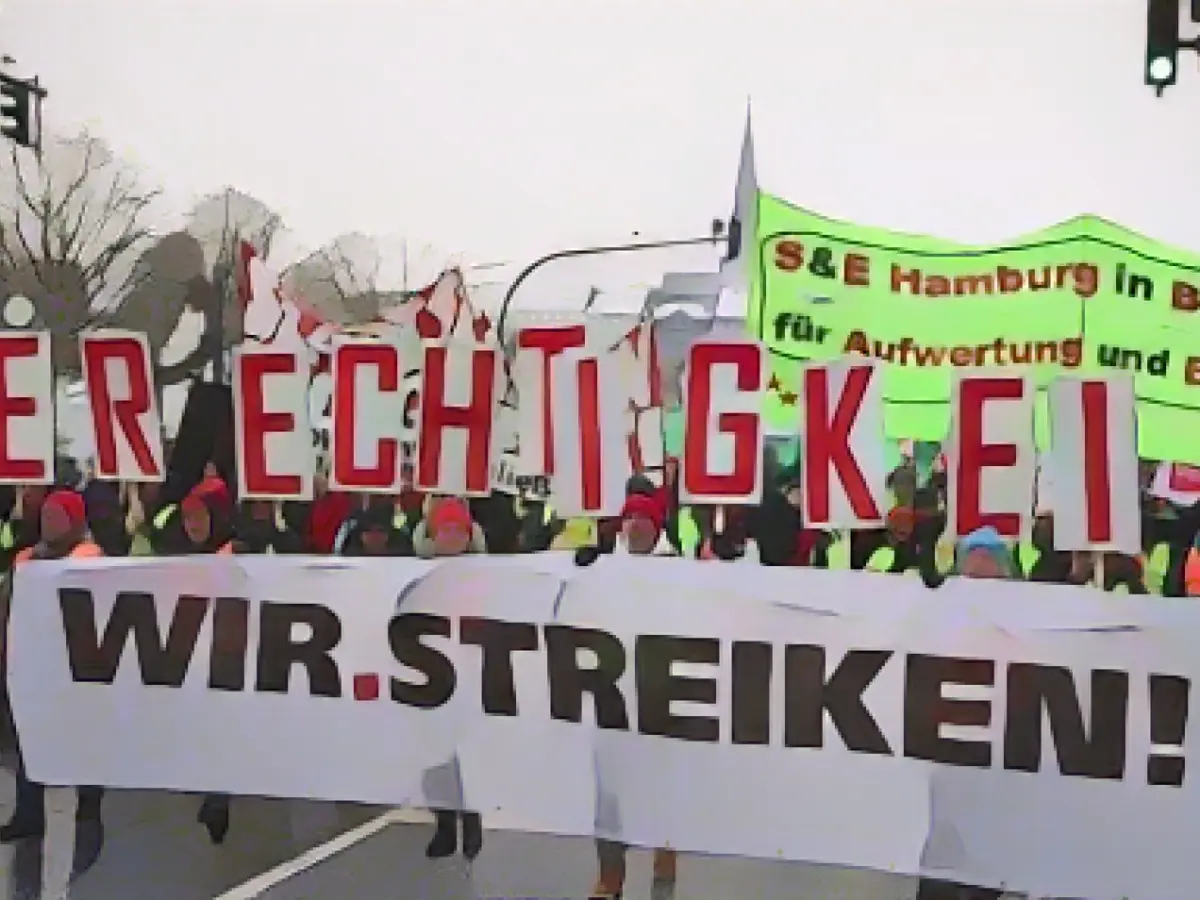Public service - Final in the collective bargaining dispute between the federal states - trade unions pile on the pressure
The trade unions are putting pressure on the employers ahead of the possible final round in the wage dispute for the public sector of the federal states. Verdi boss Frank Werneke called on the federal states to present a sufficient offer. "The game of hide and seek must now come to an end," Werneke told the German Press Agency in Berlin. "The determination of state employees to seriously fight for their demands has become more than clear during the current warning strikes," warned Werneke. Employers must take the discontent among the workforce seriously.
In recent weeks, employees from university hospitals, universities and the judiciary, among others, have gone on warning strikes for higher wages. In Düsseldorf alone, around 15,000 employees marched through the city center in demonstrations on Tuesday. The third round of negotiations between the unions and the employers of the federal states starts this Thursday in Potsdam.
Further strikes possible
The chairman of the dbb civil servants' association, Ulrich Silberbach, also emphasized the unions' willingness to fight and their ability to mobilize in the federal states. "Our colleagues are also capable of enforcing strikes in many key areas in the federal states," said Silberbach. Such strikes would require a ballot. According to observers, it is more likely that a breakthrough will be achieved in Potsdam by the weekend or that negotiations will be postponed once again. In this case, new warning strikes would be likely.
"We expect the state employers in Potsdam to finally present an offer that does not fall behind the TVöD agreement," demanded Werneke. He was alluding to the agreement for the federal and local authorities in April. As in the current wage dispute, the unions had demanded 10.5 percent more income, but at least 500 euros more. The agreement at the time had included tax and duty-free special payments totaling 3,000 euros, a basic amount of 200 euros and a subsequent 5.5 percent increase. The federal states rejected the union demands as too expensive.
Mixed signals
Werneke said: "In addition, hundreds of thousands of student employees must finally be covered by collective agreements." Overall, the federal states have a responsibility to ensure that citizens are properly provided with public services and that their employees are paid appropriately.
According toSilberbach, the trade unions had received mixed signals from the federal states in recent days. The state finance ministers were slowly realizing that they had to remain on an equal footing with the federal and local governments when it came to pay. At the same time, they wanted the employees to contribute to the budget restructuring of the federal states. However, the trade unions would not accept real wage losses.
Read also:
- Year of climate records: extreme is the new normal
- Precautionary arrests show Islamist terror threat
- Numerous oil, gas and coal lobbyists at climate conference
- COP28: Emirates announce fund for climate projects
- The German Press Agency reported that Frank Werneke, the head of Verdi, urged the federal states to make a sufficient offer before the final round of the wage dispute in the public sector.
- In Berlin, Werneke stated that the determination of state employees to fight for their demands during the current warning strikes has become apparent.
- The chairman of the dbb civil servants' association, Ulrich Silberbach, likewise stressed the unions' readiness to fight and their capacity to organize strikes in various key areas across the federal states.
- Employers in Potsdam are anticipated to present an offer that adheres to the TVöD agreement, as per Werneke's demand, to avoid additional warning strikes.
- In recent days, the federal states have sent mixed signals to the trade unions, acknowledging the need for fair pay for their employees while also seeking budget restructuring.
- Despite the mixed signals, Silberbach asserted that the trade unions would not accept real wage losses for employees in the public service sector.
- Around 15,000 employees in Düsseldorf took part in warning strikes in the previous week, with numerous other employees from university hospitals, universities, and the judiciary also participating in similar actions.
Source: www.stern.de








